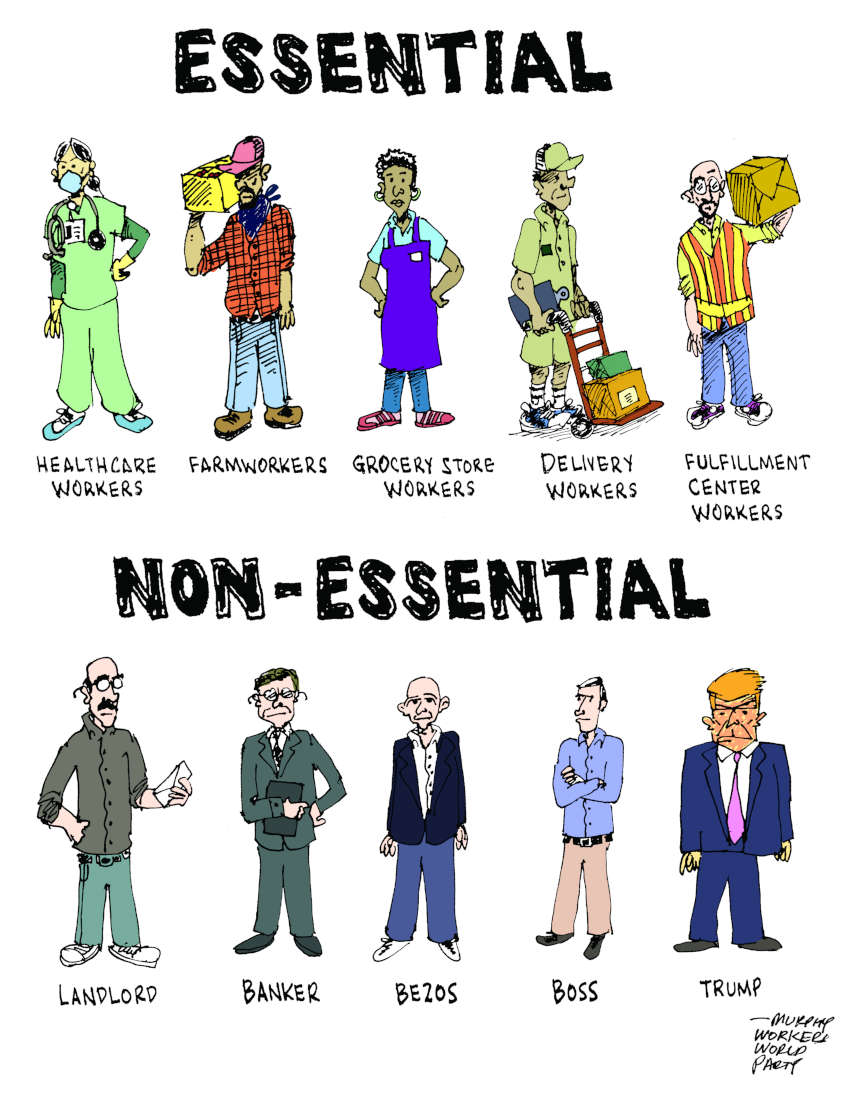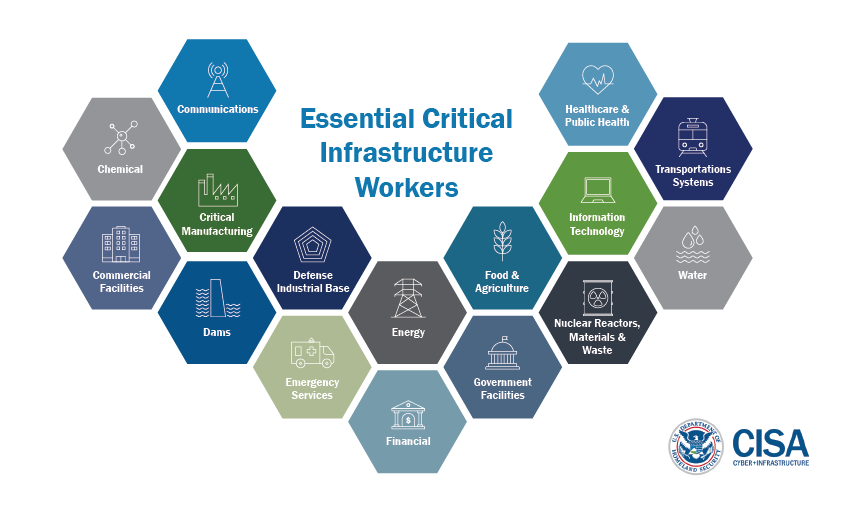Essential workers deserve hazard pay, so where are we
with that?
 On May 20, Rhode Island
Governor Gina Raimondo, in answer to a question from
reporter Bill Bartholomew, said that hazard pay for essential,
frontline workers “is not something I’m considering.”
On May 20, Rhode Island
Governor Gina Raimondo, in answer to a question from
reporter Bill Bartholomew, said that hazard pay for essential,
frontline workers “is not something I’m considering.”
Instead, she is counting
on the federal government and Rhode Island’s federal delegation to deliver some
form of hazard pay in the next round of stimulus.
“I have been assured, as
recently as [Tuesday] that in the next round of Federal stimulus that sort of
hazard pay is very much on the table,” said Raimondo, adding the she would
support such funding.
But then Governor Raimondo went on to separate frontline essential workers into two groups – healthcare workers, who are more deserving of hazard pay, and customer facing workers such as store clerks, janitors, delivery workers and more, who are not as deserving.
“I think it’s a bigger
issue for healthcare workers. It’s a much bigger issue,” said Raimondo. “I’m
open to [hazard pay], if the Federal government provides the finances. I am
more focused on those sorts of bonuses for those people who are in the health
care industry, who are daily in close contact with people who are sick.”
Who are our frontline workers?
 The United States Department of Homeland Security released
a memorandum defining “essential
critical infrastructure workers.” The definition is quite exhaustive, and it
does include your local grocery store clerk, not just healthcare workers.
The United States Department of Homeland Security released
a memorandum defining “essential
critical infrastructure workers.” The definition is quite exhaustive, and it
does include your local grocery store clerk, not just healthcare workers.
When we look at where
hazard pay stands in Washington, it’s definitely on the table, but its future
is uncertain.
As early as April 10 Rhode Island Senator Jack Reed supported the “COVID-19 Heroes Fund” that would “give essential workers who have been on the job during the COVID-19 pandemic a $25,000 hazard pay increase, the equivalent of an additional $13 an hour from the start of the public health emergency through December 31, 2020.” That bill hasn’t proceeded far yet, but some form could still possibly pass.
As early as April 10 Rhode Island Senator Jack Reed supported the “COVID-19 Heroes Fund” that would “give essential workers who have been on the job during the COVID-19 pandemic a $25,000 hazard pay increase, the equivalent of an additional $13 an hour from the start of the public health emergency through December 31, 2020.” That bill hasn’t proceeded far yet, but some form could still possibly pass.
This week, the House
passed the Heroes Act, which allots $200
billion for “essential critical infrastructure workers” to receive hazard pay.
That bill, as it stands, is unlikely to make it through the Senate intact, so some form of hazard pay is again, far from certain.
Note that neither the Senate or the House proposal makes the strong demarcation between health care workers and other essential workers that Governor Raimondo has. After all, healthcare workers have to eat, so grocery stores need to remain open.
That bill, as it stands, is unlikely to make it through the Senate intact, so some form of hazard pay is again, far from certain.
Note that neither the Senate or the House proposal makes the strong demarcation between health care workers and other essential workers that Governor Raimondo has. After all, healthcare workers have to eat, so grocery stores need to remain open.
“A lot of the people
that are still working have no choice but to work and also are in essential
positions,” said Representative Donald Payne (Democrat,
New Jersey), speaking during a press conference in support of the Heroes Act.
“So it’s our lower paid janitors, people in grocery stores, mom and pop shops on the corner, bodegas, that have stayed open to keep this country fed and healthy. So why shouldn’t they be compensated?
“So it’s our lower paid janitors, people in grocery stores, mom and pop shops on the corner, bodegas, that have stayed open to keep this country fed and healthy. So why shouldn’t they be compensated?
“These workers will get
an extra $13 per hour if the bill is passed,” continued Payne. “That could make
a big difference in a lot of people’s lives. These are grocery store clerks,
bus drivers and child day care workers who are on the job daily, and they need
to be rewarded for that.”
Steve Ahlquist is a frontline reporter in Rhode Island. He
has covered human rights, social justice, progressive politics and
environmental news for half a decade. Uprise RI is his new project, and he's
doing all he can to make it essential reading. atomicsteve@gmail.com
Can
we please ask a favor?
Funding for UpRiseRI
reporting relies entirely on the generosity of readers like you. Our
independence is how we are able to write stories that hold RI state and local
government officials accountable. All of our stories are free and available to
everyone right here at UpriseRI.com. But your support is essential to keeping
Steve on the beat, covering the costs of reporting many stories in a single
day. If you are able to, please support Uprise RI. Every contribution, big or
small is so valuable to us. You provide the motivation and financial support to
keep doing what we do. Thank you.